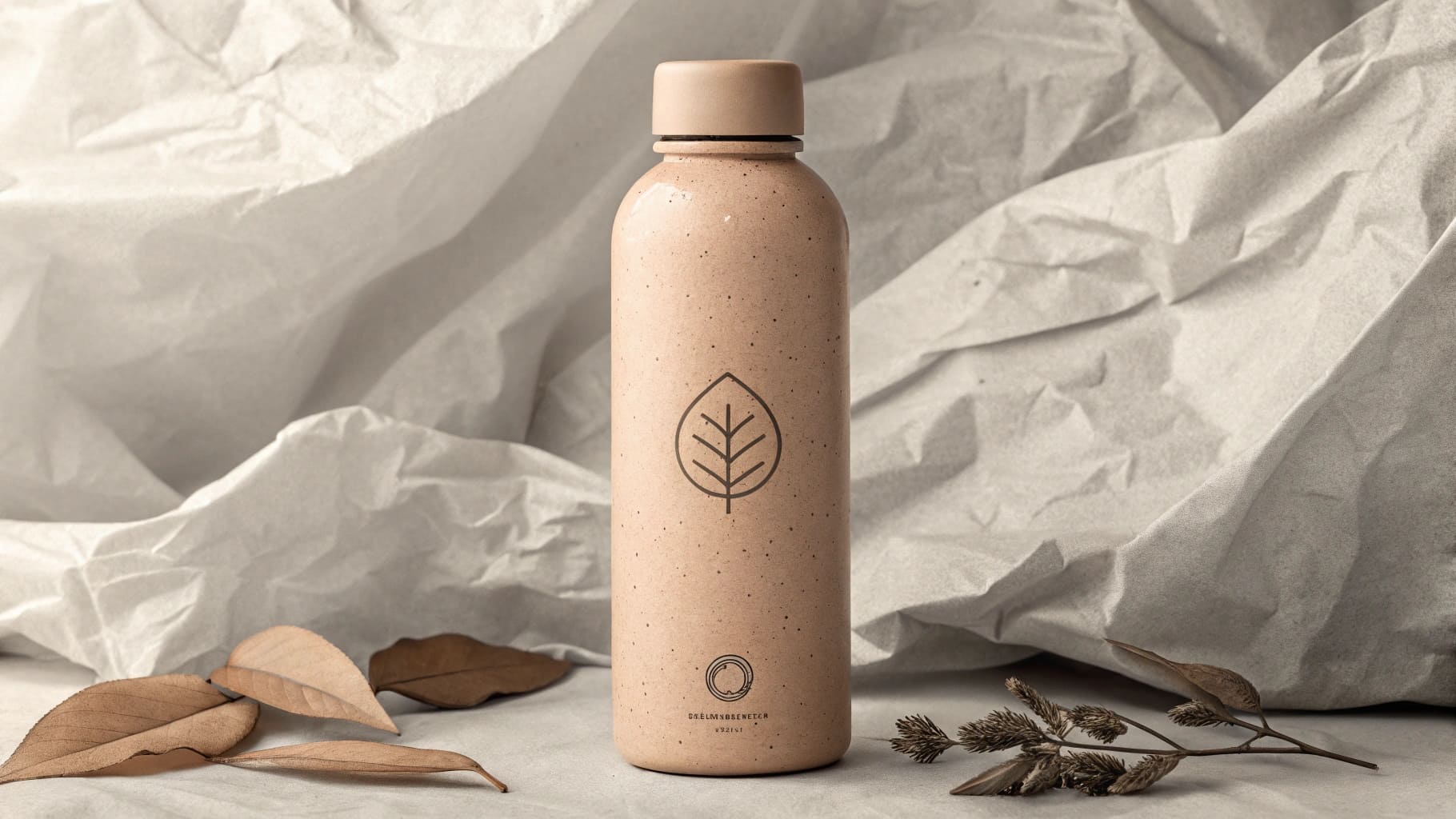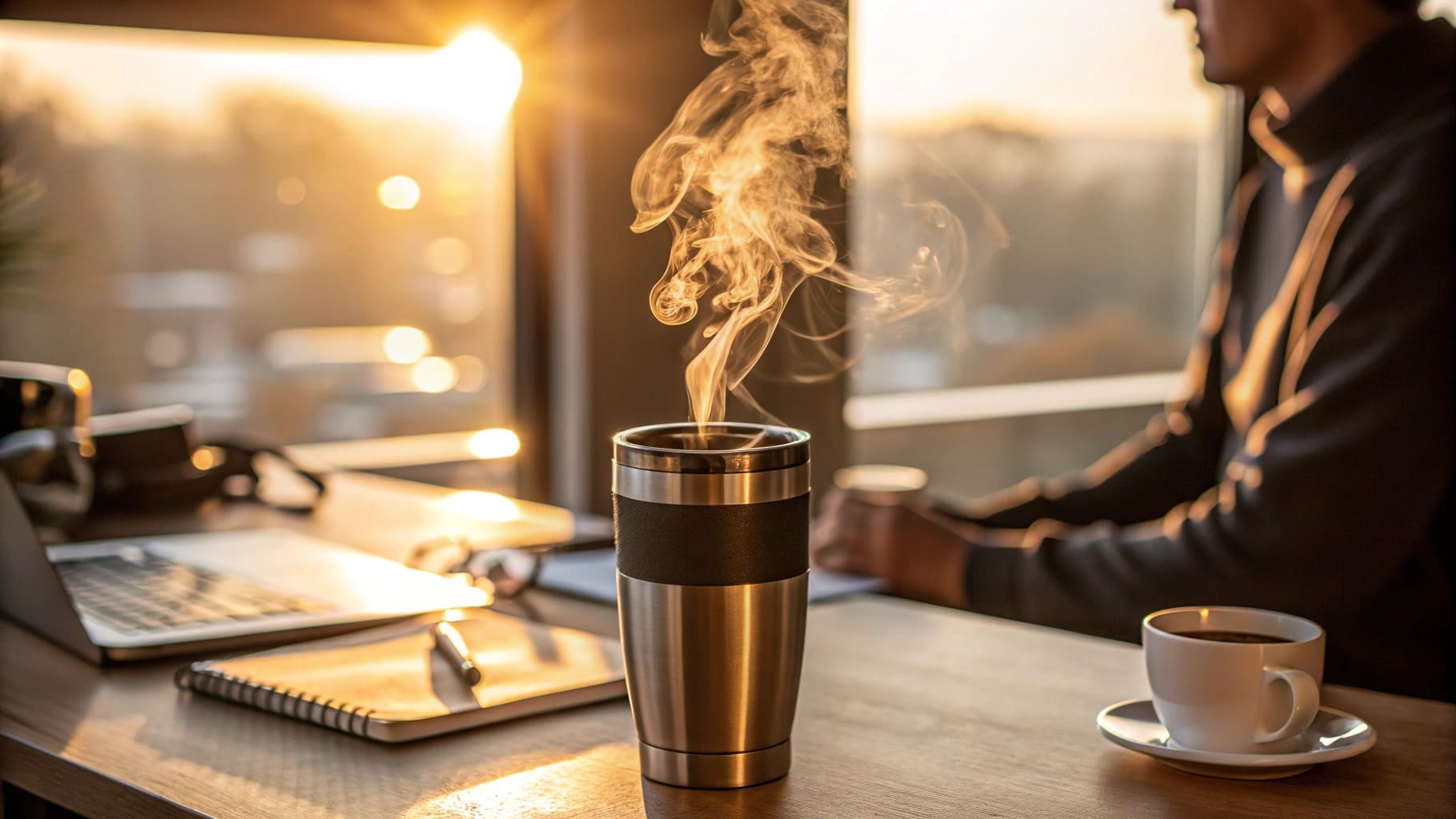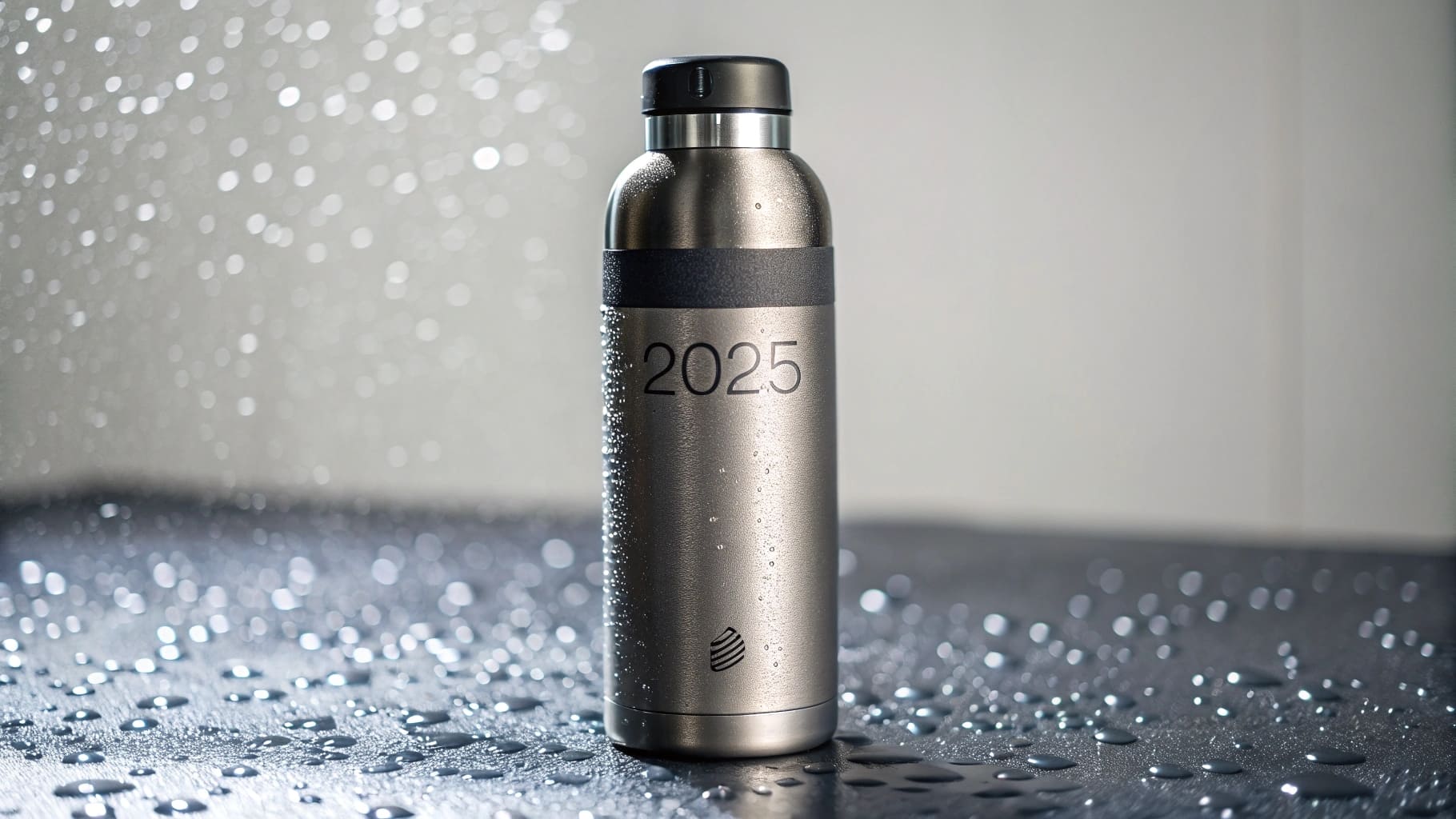Struggling to pick the right steel for your water bottles? This choice impacts quality, safety, and your brand. I'll help you understand the best option.
For water bottles, 304 stainless steel is definitely the better and safer choice. Its superior corrosion resistance and food-grade safety make it ideal for products that hold beverages, protecting both taste and health.

Choosing between stainless steel types can seem tricky. But, it's a really important decision for your business. If you are a brand, an importer, or a wholesaler, getting this right affects your product quality and how your customers see you. Let's look closer at the common options to help you make the best choice for your stainless steel water bottles. This will ensure your customers are happy and your brand stays strong.
Which stainless steel is better, 201 or 304?
Are you confused about whether 201 or 304 steel is better for your products? Picking the wrong one can mean rust and unhappy customers. Let's clearly break down their main differences.
304 stainless steel is much better for water bottles. It fights rust way more effectively than 201 steel. This means your bottles will last longer and drinks will stay pure.

When we talk about stainless steel for products like water bottles, the two names you'll hear most often are 201 and 304. As a manufacturer at Icobottle, I work with these materials every day. Let me tell you, there's a big difference, especially for items that hold drinks.
304 Stainless Steel: This is often called 18/8 stainless steel. The "18/8" means it has about 18% chromium and 8% nickel. These two elements are key. Chromium gives it great rust resistance. Nickel also helps with rust and makes the steel strong and easy to shape. This is why 304 is the go-to for food-grade items. It doesn't react with food or drinks, so it keeps things safe and tasting right. For businesses like Mark Shenng's in Canada, who need top quality for their rebranded bottles, 304 is what I always recommend.
201 Stainless Steel: This type has less nickel and more manganese. Manufacturers use manganese to make it cheaper. While it looks similar to 304 at first, its ability to resist rust is much lower. This is a big problem for water bottles. Over time, especially with water or slightly acidic drinks, 201 steel can start to rust or pit. This isn't just about looks; it can affect the taste and even safety.
Here's a simple comparison:
| Feature | 201 Stainless Steel | 304 Stainless Steel (18/8) |
|---|---|---|
| Corrosion Resistance | Lower; prone to rust, especially with moisture | Excellent; highly resistant to rust |
| Nickel Content | Lower (around 0.5-5.5%) | Higher (around 8-10.5%) |
| Manganese Content | Higher (around 5.5-10%) | Lower (around 2%) |
| Cost | Lower | Higher |
| Durability | Less durable in corrosive environments | Very durable, long-lasting |
| Food Safety | Questionable for long-term liquid contact | Excellent; industry standard |
| Typical Uses | Utensils (sometimes), decorative items | Food equipment, water bottles, cookware |
For B2B buyers, the slightly lower cost of 201 might seem tempting. But trust me, it's a false saving. The risk of product failures, customer complaints, and damage to your brand reputation is just too high. Investing in 304 steel from the start is the smart move for quality and long-term success.
Which grade stainless steel is best for a water bottle?
Want the absolute best steel for your water bottle line? Compromising on quality could lead to customer returns and serious damage to your brand's image. Let's pinpoint the ideal grade.
For water bottles, 304 grade (also known as 18/8) stainless steel is undoubtedly the best. It offers excellent protection against rust, is completely food-safe, and is durable enough for daily use.

When you're looking for the "best" grade of stainless steel for water bottles, the answer is consistently 304. This isn't just my opinion as a manufacturer; it's the industry standard for good reasons. As someone who exports high-quality bottles to demanding markets in America and Europe, I know that 304 stainless steel meets the expectations of discerning consumers and procurement officers.
Why "Food-Grade" is Non-Negotiable: The term "food-grade" is critical here. 304 stainless steel is considered food-grade because it's highly resistant to oxidation and corrosion from various food substances and liquids. This means it won't leach harmful chemicals into the water, nor will it react with the contents to alter their taste or smell. This is a baseline requirement for any product intended for consumption.
Meeting International Standards: Using 304 stainless steel helps products meet important international food safety standards. Think about regulations like those from the FDA (U.S. Food and Drug Administration) and LFGB (Lebensmittel-, Bedarfsgegenstände- und Futtermittelgesetzbuch in Germany, recognized across Europe). These bodies set strict rules for materials that come into contact with food and drinks. Using 304 makes it much easier to achieve compliance, which is essential for my clients who import to these regions. Mark Shenng, for example, relies on these certifications for his Canadian distribution.
Building Brand Reputation: For B2B clients like startup bosses or procurement officers from large companies, the choice of material directly reflects on their brand. Opting for 304 stainless steel signals a commitment to quality, safety, and durability. Customers are increasingly aware of material quality and its health implications. Using a superior material like 304 builds trust and can be a strong selling point. It shows you aren't cutting corners.
Is There Anything Better (or Necessary)? Sometimes, you might hear about 316 stainless steel. This is marine-grade stainless steel and has even higher corrosion resistance, especially against salt and chlorides. While excellent, it's generally overkill for standard water bottles and is more expensive. For drinking water and most common beverages, 304 provides the perfect balance of safety, performance, and cost-effectiveness. Sticking with 304 ensures you're providing a top-quality, safe product without unnecessary expense. It's the smart, reliable choice.
What grade stainless steel is best for water?
Are you concerned about which steel is the safest and most reliable for holding drinking water? You definitely don't want any harmful materials getting into your customers' drinks. Let's identify it.
The best grade of stainless steel for direct and prolonged contact with water is 304, also known as 18/8. It's highly resistant to rust and won't leach harmful substances.

When we talk specifically about what's best for direct, long-term contact with water, 304 stainless steel stands out. As someone who helps clients like Mark source water bottles, I always emphasize the importance of how the steel interacts with water itself.
The Science of Corrosion (Simplified): Water, especially if it has minerals or a slightly acidic pH (like from fruit infusions), can be corrosive over time.
- 201 Stainless Steel: The lower nickel and higher manganese content in 201 make it more vulnerable. Manganese, while making steel harder, doesn't offer the same protective qualities as nickel against corrosion. When 201 steel starts to corrode, it can release manganese ions into the water. This can affect the taste, giving it a metallic flavor, and in higher concentrations, manganese isn't healthy. Rust spots can also form, which are obviously undesirable.
- 304 Stainless Steel: The chromium in 304 steel (at least 18%) is the real hero here. It reacts with oxygen in the air to form a very thin, stable, passive layer of chromium oxide on the surface of the steel. This layer is like an invisible shield. It protects the underlying steel from reacting with water and other substances. Even if this layer gets scratched, it can "heal" itself by re-forming, as long as there's oxygen around. This self-repairing quality is why 304 is so good at resisting rust and staying inert.
Health and Taste Integrity: The main goal for a water bottle is to hold water safely without changing its quality.
- With 201, there's a risk of that metallic taste developing or, worse, leaching of elements like manganese if corrosion occurs. I've seen firsthand how procurement officers get concerned about safety after testing bottles made from 201. It just doesn't inspire confidence for long-term use.
- With 304, its inertness means the water tastes like water. There's no metallic tang, and you don't have to worry about harmful substances leaching into your drink. This is crucial for health-conscious consumers and for maintaining your brand's promise of quality.
Here’s how they compare specifically for water contact:
| Feature | 201 Stainless Steel | 304 Stainless Steel (18/8) |
|---|---|---|
| Rust/Corrosion with Water | Higher risk, especially over time | Very low risk, stable passive layer |
| Taste Alteration | Possible (metallic taste from corrosion) | Unlikely, maintains water purity |
| Leaching Risk (e.g., Mn) | Higher, if corrosion occurs | Extremely Low, very stable material |
| Long-term Safety for Water | Questionable due to corrosion potential | Excellent, trusted for food/drink contact |
For any business selling water bottles, guaranteeing the purity and safety of the water is paramount. Choosing 304 stainless steel is the most reliable way to ensure this, protecting both your customers and your reputation.
Conclusion
For top quality, safety, and brand trust in water bottles, 304 stainless steel is clearly superior. Make the wise choice for your products.

